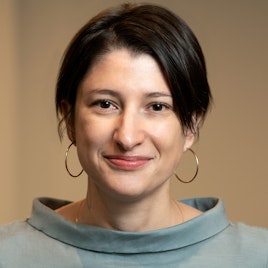What We Can All Learn from Danish Street Lawyers
By Tatyana Margolin

One of our primary objectives at the Open Society Public Health Program is to support initiatives that integrate legal services with health care. We frequently support education workshops and university courses, but nothing beats a hands-on learning experience. To that end, I recently traveled to Denmark with five lawyers from Russia and Ukraine who work in the field of harm reduction. The mission: to shadow the Copenhagen-based Street Lawyers (Gadejuristen).
The Street Lawyers, founded in 1998 by Nanna Gotfredsen, provide legal services for people who use drugs, especially those who are homeless. The organization that started in Gotfredsen’s living room is today recognized worldwide for making a tremendous impact in improving the health and rights of some of the most marginalized members of society. The Street Lawyers are easily recognized on the streets of Copenhagen by their ubiquitous coffee cart, through which they dispense coffee and snacks along with legal advice.
The five lawyers in my study group shared their work challenges and experiences with their Danish counterparts, engaging in dialogue about the most effective methods of legal aid provision to drug users. The group also visited the offices of the Danish Drug Users’ Union, a medical office that delivers heroin maintenance therapy, and a free clinic that reaches out to neglected populations in Copenhagen.
Surprisingly, the highlight for my Russian and Ukrainian colleagues was a trip to a maximum-security prison. We were all impressed by the humane approach of the Danish corrections system towards its inmates, particularly in light of atrocities that the lawyers in the group have seen in their countries’ prisons. One of the few “closed” prisons in Denmark, this institution constantly tries to come up with more innovative and useful services for its detainees. Methadone is freely available to detainees upon request, but nobody at this institution is serving a sentence for a drug-related crime.
While the attorneys in my group encounter tremendous challenges in their everyday work—from a government ban on opioid substitution therapy in Russia to police violence at methadone-dispensing sites in Ukraine—they were inspired and motivated by what they saw.
“It may appear impossible,” said Maria Kaminska, director of the Lviv-based legal aid project All Together, referring to the social and legal protections that now exist for Danish drug users, “but not so long ago we thought that methadone in Ukraine was an impossibility. We just need to continue working hard. Someday we’ll have the Street Lawyers in Lviv.”

Until November 2021, Tatyana Margolin was regional director for the Open Society Eurasia Program.

